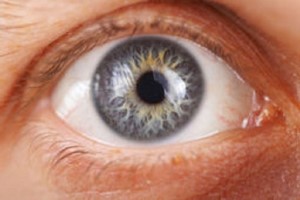In a health landscape saturated with conventional wisdom, former glaucoma sufferer Joe Lovett has emerged as a harbinger of change, boldly claiming that he successfully cured his debilitating eye condition with the humble yet versatile coconut oil. This revelation challenges established medical norms surrounding glaucoma, a condition often deemed incurable by the world's leading ophthalmologists. As Lovett's story gains attention, it forces a reconsideration of traditional approaches to glaucoma and prompts a deeper exploration of the neurological aspects of this vision-threatening ailment.
Glaucoma, long regarded as a relentless adversary, typically involves elevated intraocular pressure (IOP), which, left unchecked, can lead to irreversible damage to the optic nerve and eventual blindness. Conventional treatments focus on mitigating this pressure through a three-tiered approach: eye drops to lower IOP, surgical interventions to address drainage issues, and the use of eye antioxidants to counteract nutritional deficiencies that may contribute to the condition.
However, Lovett's narrative diverges from this standard trajectory. He asserts that glaucoma is not solely an ocular issue but rather a neurological disorder, akin to Parkinson's disease and Alzheimer's. This perspective challenges the prevailing belief that elevated pressure is merely a symptom, urging a closer examination of the root causes and paving the way for innovative solutions.
Lovett's journey with glaucoma spans over 18 years, during which he initially followed the conventional treatment path. However, dissatisfied with the results, he sought alternatives and stumbled upon coconut oil as a potential remedy. The author of two books on glaucoma and eye health, Lovett's claims resonate with a growing sentiment that the current medical understanding of glaucoma may be incomplete.
The article posits that glaucoma's neurological underpinnings align it with other neurodegenerative disorders. It draws parallels with Parkinson's disease affecting the Substantia Nigra and Alzheimer's impacting the Hippocampus Frontal Lobes, suggesting that glaucoma's manifestation in the eyes may be a symptom of broader neurological degeneration. Notably, studies cited in the article reveal a heightened prevalence of glaucoma in Alzheimer's patients, underscoring potential interconnections between these seemingly disparate conditions.
Lovett's approach to glaucoma treatment involves embracing a ketogenic diet, characterized by low carbohydrates, high protein, and healthy fats, particularly omega-3 oils. Central to his regimen is the incorporation of coconut oil, touted for its medium fatty acids (MCFAs), which can be converted into ketones irrespective of blood glucose levels. Lovett contends that raising blood ketones and subsequently increasing brain-derived neurotrophic factors (BDNFs) through coconut oil consumption can positively impact the central nervous system, including the eyes.
The article emphasizes Lovett's assertion that maintaining a ketogenic coconut oil-based diet over time allows for healing and repair within the central nervous system, potentially reversing conditions such as epilepsy, Alzheimer's, Parkinson's, and, crucially, glaucoma. Lovett's claims are supported by animal studies indicating that BDNFs can mitigate damage to the retina and optic nerves, fostering healing and regrowth.
Importantly, the author highlights that Lovett's unconventional approach challenges the prevailing notion that degenerative diseases like glaucoma are irreversible. As glaucoma remains a significant global health concern, Lovett's stance presents a potential paradigm shift that invites individuals facing glaucoma challenges to explore alternative avenues for treatment.
The article also acknowledges the role of coconut oil-based eye drops in glaucoma management. While scientific evidence supporting this approach may be limited, anecdotal accounts suggest its potential efficacy. The piece mentions Otunba Olajuwon Okubena, a proponent of coconut oil-based eye drops, who suggests that one drop of such a formula can maintain pressure control for up to five days and even potentially reverse glaucoma.
The author, a glaucoma patient for 27 years, brings a personal perspective to the discussion. Drawing on a wealth of nutritional knowledge, the author underscores the importance of a holistic approach to eye and brain health. Mentioning antioxidant-rich substances like Jobelyn, Grape Seed Extract, Alpha Lipoic Acid, and CBD oil, the article reinforces the idea that addressing the root causes of glaucoma, particularly in the brain, is integral to effective treatment.
In conclusion, the article positions Joe Lovett as a trailblazer in the realm of glaucoma treatment, challenging established medical beliefs with his unconventional approach. It advocates for a paradigm shift, urging readers to consider the interconnectedness of eye and brain health in addressing this prevalent and potentially devastating condition. As individuals continue to grapple with glaucoma's challenges, Lovett's journey serves as a beacon of hope, prompting a reevaluation of traditional medical perspectives and inspiring a more holistic approach to eye care.
Thenationalonlineeng.net – Femi Kusa – Edited by Mohammad Khazem













